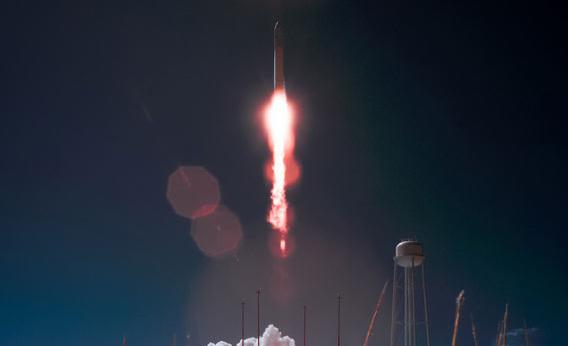Create a free profile to get unlimited access to exclusive videos, sweepstakes, and more!
Antares Launch in Infrared

This morning's launch of the Orbital Sciences Corporation's Antares rocket was picture perfect, taking to the skies at 10:58 Eastern time. A few hours later, NASA released the above even perfecter picture; a photo of the launch using a modified camera to shoot in the infrared.
The light we seeâvisible lightâis only a tiny slice of the electromagnetic spectrum. Infrared light has a wavelength just a bit longer than what our eyes can see (or, more accurately, it starts there; the term "infrared" covers a broad range of wavelengths). Digital detectors in cameras can actually see IR light, but in general filters are used to block it so that the picture we get matches what our eyes see more closely. But those filters can be removed, allowing IR photos to be taken.
Things look different in infrared. For example, leaves on trees are highly reflective in IR (and you really want to click that link), so they tend to appear very bright when photographed this way. Liquid water absorbs IR, so it looks darker than usual.
The picture of the launch shows this. The colors used are not the way our eyes see them; it's so-called "false-color" (a term I don't like very much, but for now it'll do). Plants look very orange here, and the steam plume of rocket exhaust is reflective at all wavelengths, making it look white. To me, the photo's colors are a bit deeper and lusher than what my brain expects. Although the NASA caption doesn't say, I'm pretty sure the camera used also allowed visible light as well as infrared through, so there is enough "normal" light and color in the picture to make it seem familiar, and enough of the infrared to make it seem just a bit fantastical.Â
I'm glad this flight went so well, and I'm always delighted to see a picture come out that gives me a chance to show a little bit more of the Universe to you.


























